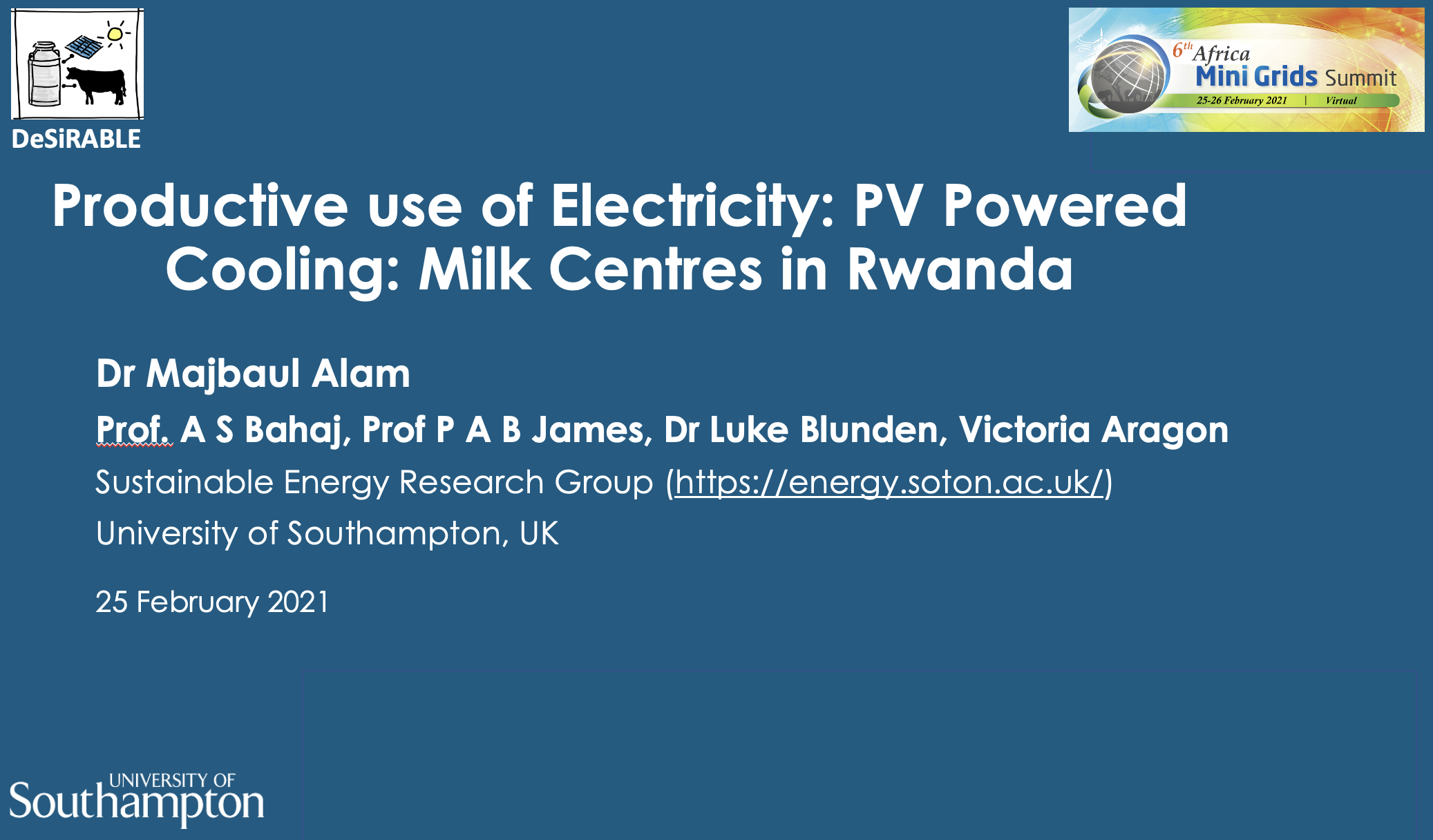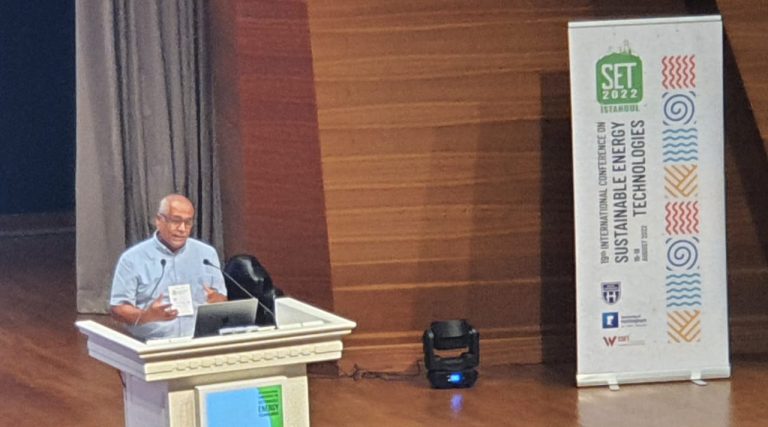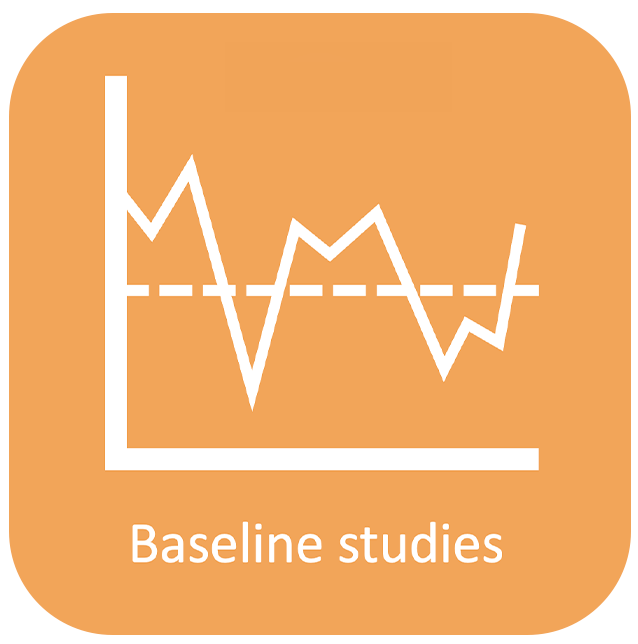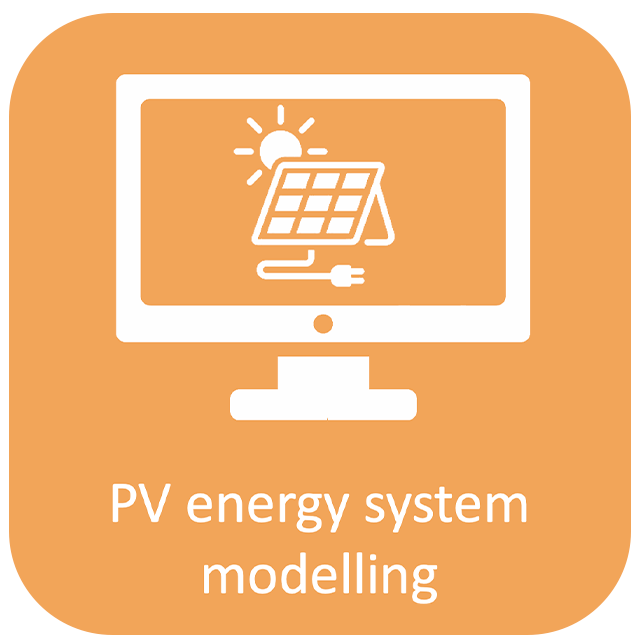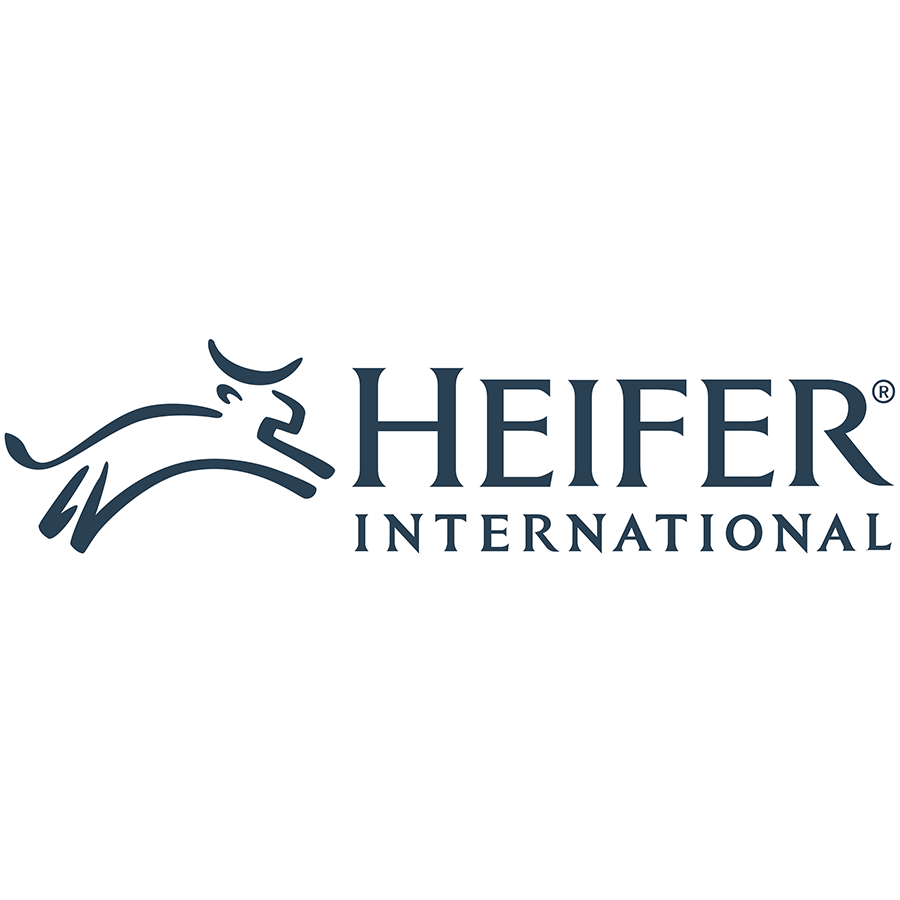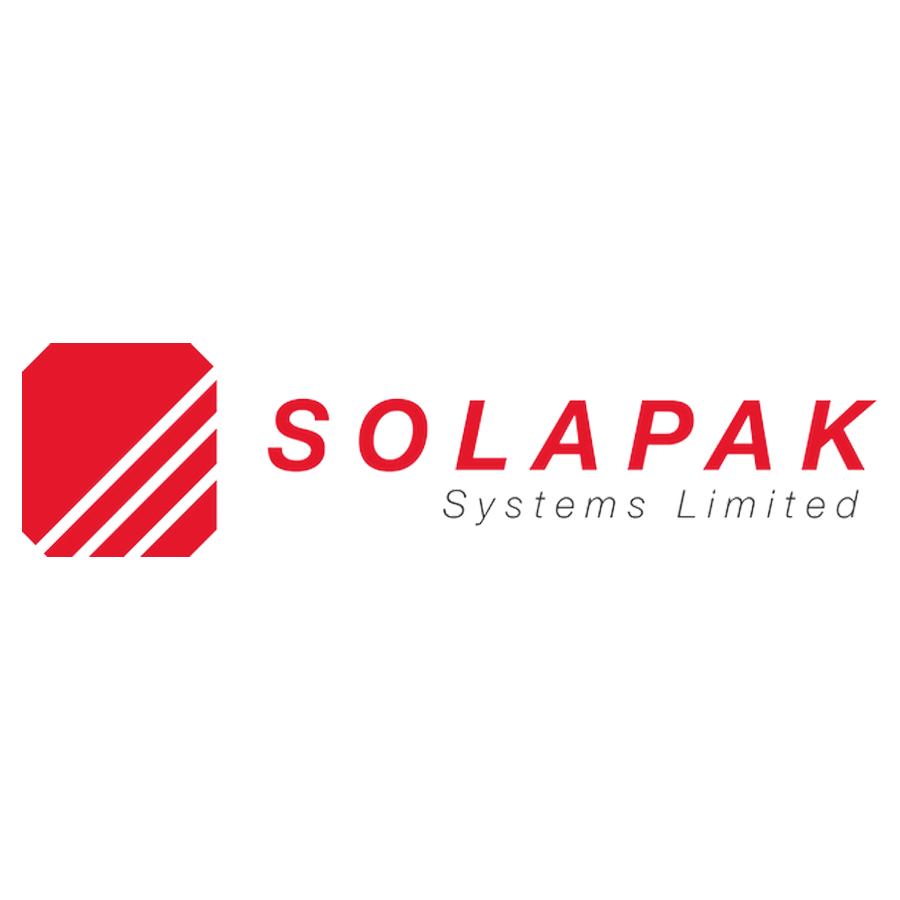DeSiRABLE
Demand Side Renewables for Agricultural Base Load Energy
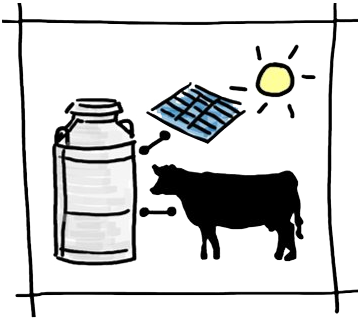
Demand Side Renewables for Agricultural Base Load Energy (DeSiRABLE) project is exploring impactful use of electricity to support socio-economic growth in off-grid rural areas in Rwanda. The project stems previously funded Energy Catalyst Round 4 project, EVERESST DC, where we established that DC energy services, centred around an anchor base load, can provide better value energy (electricity) compared to diesel generator driven mini grids. This work opened up large numbers of electricity access opportunities to support rural development and alleviate poverty. However, each application to some degree may be bespoke, depending on the anchor load and local community requirements.
The milk industry in Rwanda
In Rwanda, milk production has the potential to contribute to food security, nutrition, and employment. The government of Rwanda set up the “One cow per household programme”, known as “Girinka” in 2006, allocating more than 110,000 cattle since; but further support is needed to develop the milk industry.
National milk production is low in comparison to other East African countries and the dairy value chain faces many limitations. Quality issues generate distrust from consumers and the high level of informality in the market results in a lack of regulation and incentives for business development.
Milk Collection Centres (MCC)
MCCs are milk chilling and storage centres where farmers from local areas can sell their milk for later processing. They also have the potential to be used as education centres for farmers and offer milk and non-milk related services.
Electricity supply at the MCCs depends on financial availability to purchase either fuel for diesel generators or electricity from the grid, if a connection is available. Income is highly variable, as milk production levels vary with rainy & dry seasons.
Project aims & objectives
The DeSiRABLE project, led by SolapakDevelopment Ltd, seeks to explore and develop strategies for development through the deployment of stand-alone solar electricity driven technologies to power agricultural base loads, such as the chilling units at the Milk Collection Centres (MCCs).
Having a secure electricity supply would allow the MCCs to operate continuously as well as use extra electricity for tasks that can improve the quality of milk operations. Additionally, a reduction in operation costs would allow to enhance the services provided at the MCC, attracting more farmers and helping farmers improve the quality of their production.
Furthermore, spare energy capacity could be directed to services that target the needs of local communities, such as water and electricity supply. The MCC has the potential to become a centre for economic activities.
Overall, the DeSiRABLE project aims to transform the MCCs into “energy hubs” providing energy access opportunities to support rural development, enhancing growth and eradicating poverty.
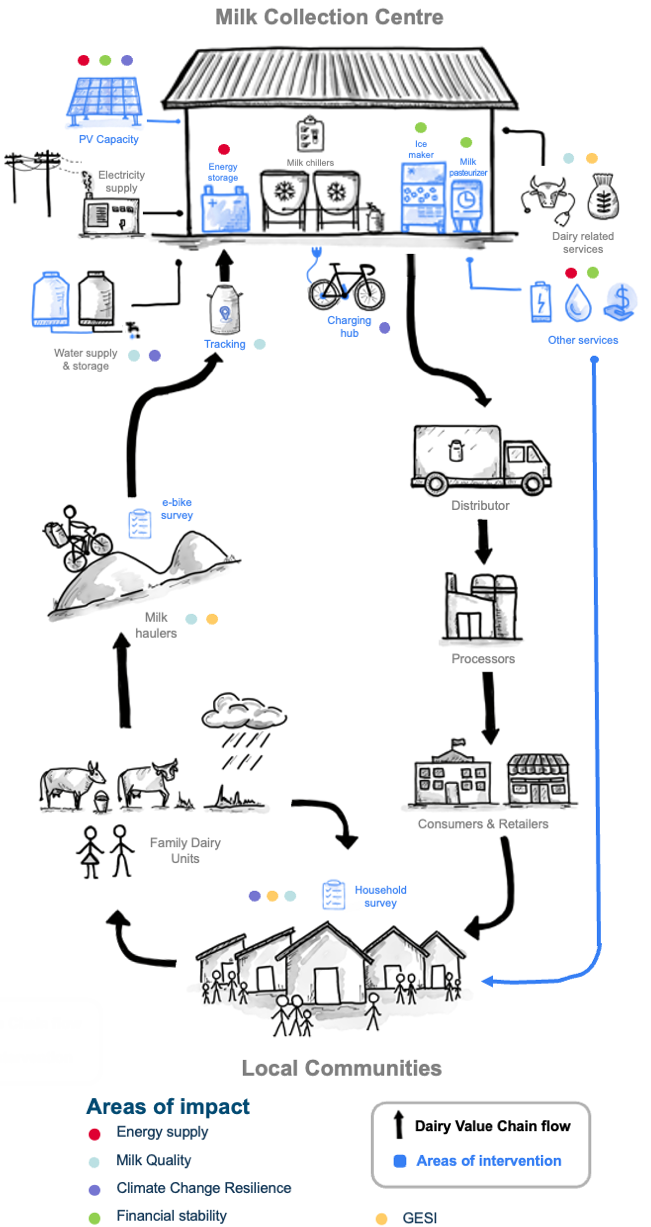
The DeSiRABLE research, development and deployment activities are built around the following 6 key areas:
Baseline studies
Due to COVID-19 travel restrictions, some survey work was delivered in surrogate mode in collaboration with local partners. The University of Southampton team visited four MCC sites and surrounding areas to conduct the impact assessment survey.
A team of 15 student from the University of Rwanda, Nagyatare campus were recruited and trained over two days to complete the field data collection across two districts covering four MCCs and nearby communities. The students were trained to use the Fulcrum data collection tool in order to survey 150 participants.
The survey questions covered daily milk volume, milk cooling & energy usage, milk supply chain, involvement of local communities, potential of transforming diesel based electricity supply to solar PV, and opportunities for enhancing electricity access for local off-grid communities using MCC PV-systems as energy hubs.
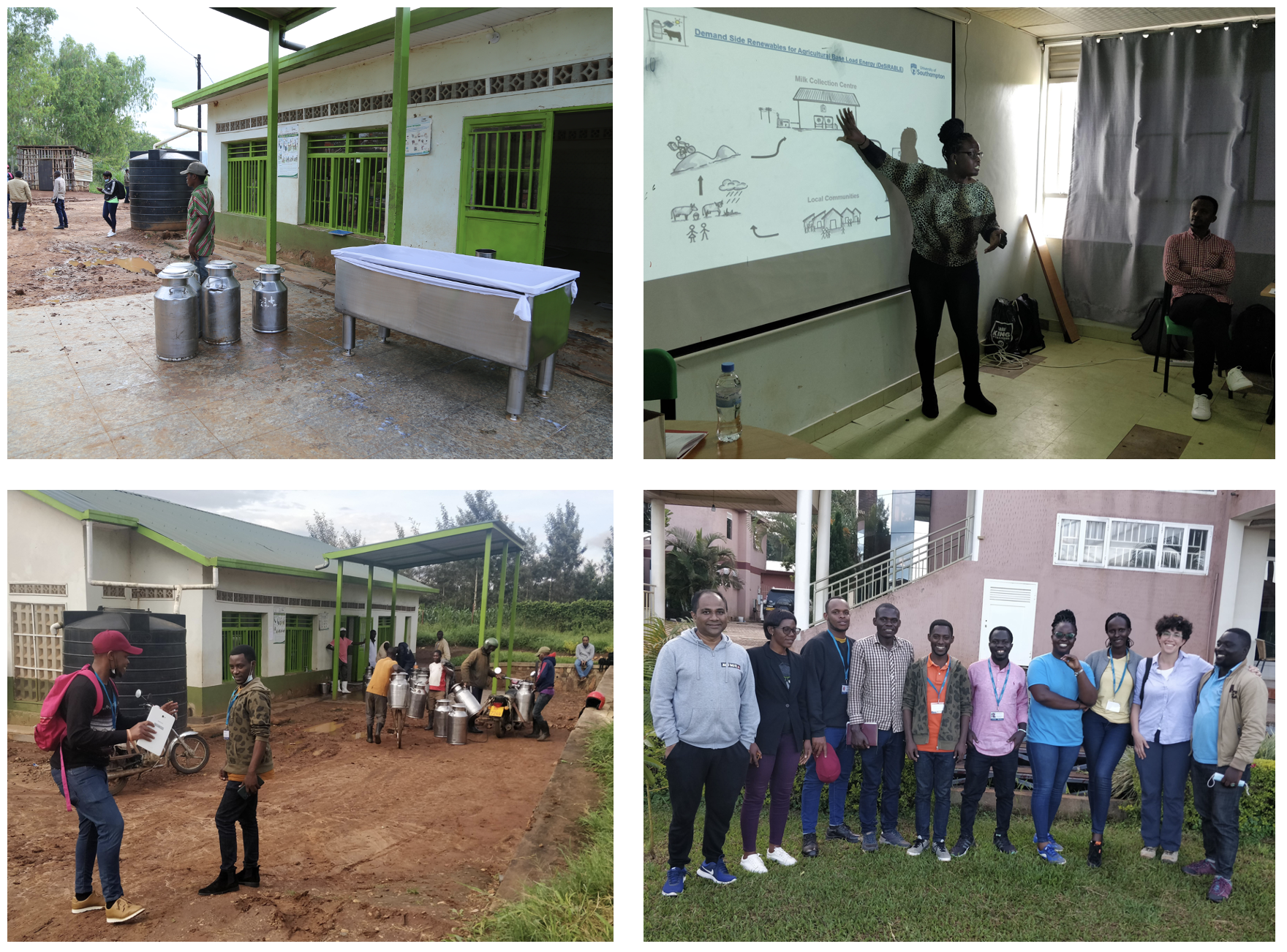
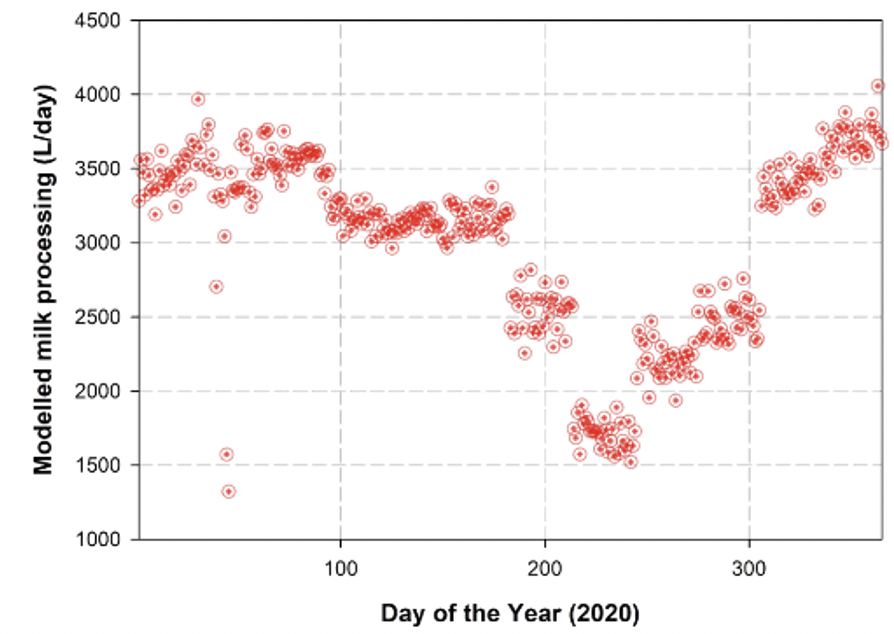
PV energy system modelling
A range of PV systems were modelled for two study MCCs, which considered the cooling load requirements for milk processing along with the other productive uses requirements. Productive uses include, (i) water purification, (ii) e-bike charging, and (iii) MCC as a charging hub for battery-as-a-service for community electrification.
The University of Southampton team also carried out extensive modelling and analysis for, (i) rain water harvesting, and (ii) thermal modelling for solar collector for hot water, and milk chiller cooling performance using TRNSYS.
Remote monitoring & data logging
The research team installed a state-of-the-art monitoring and control system to understand the performance of the installed 20kWp PV-battery system in (i) serving cooling load, (ii) its potential to support other productive loads and (iii) linking availability of spare electricity on MCC community-energy portal.
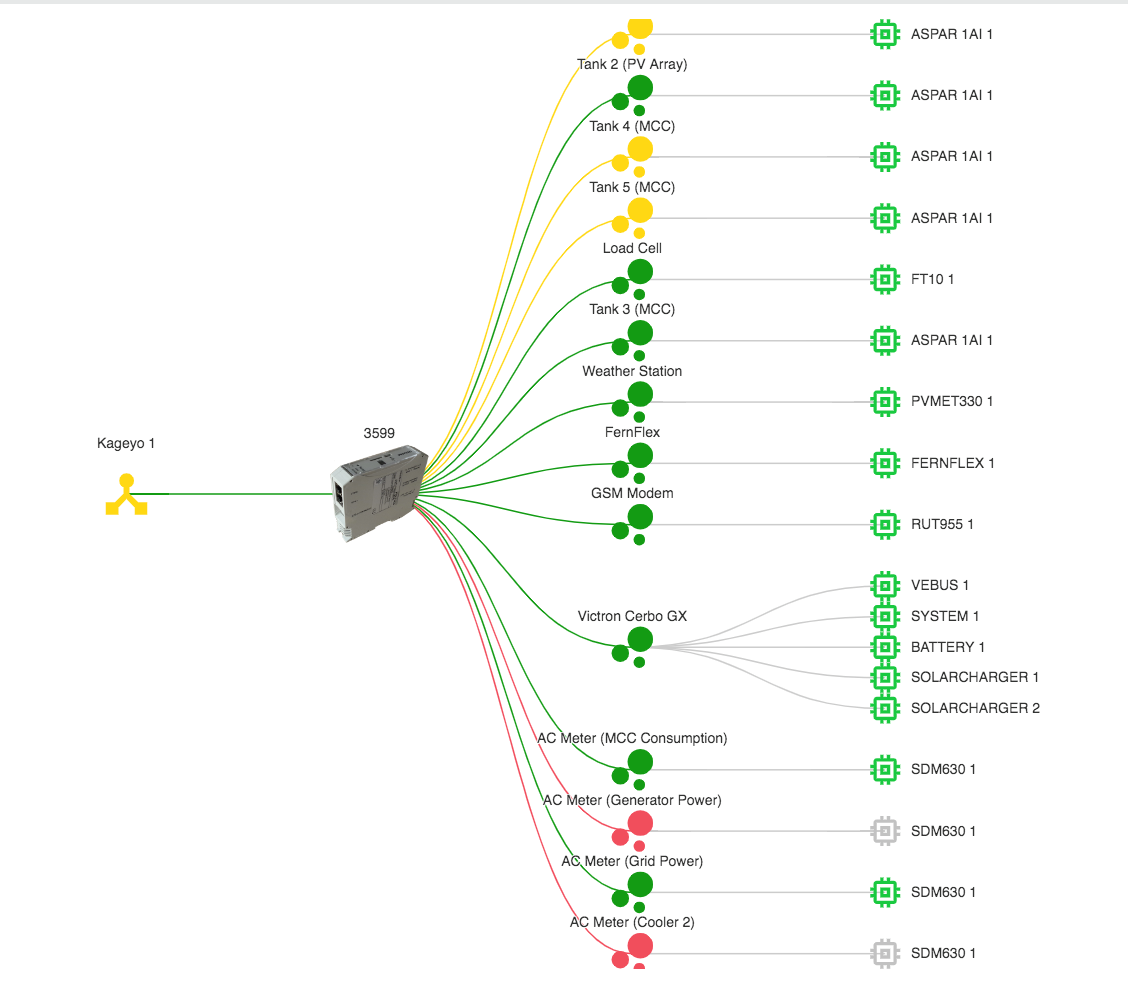
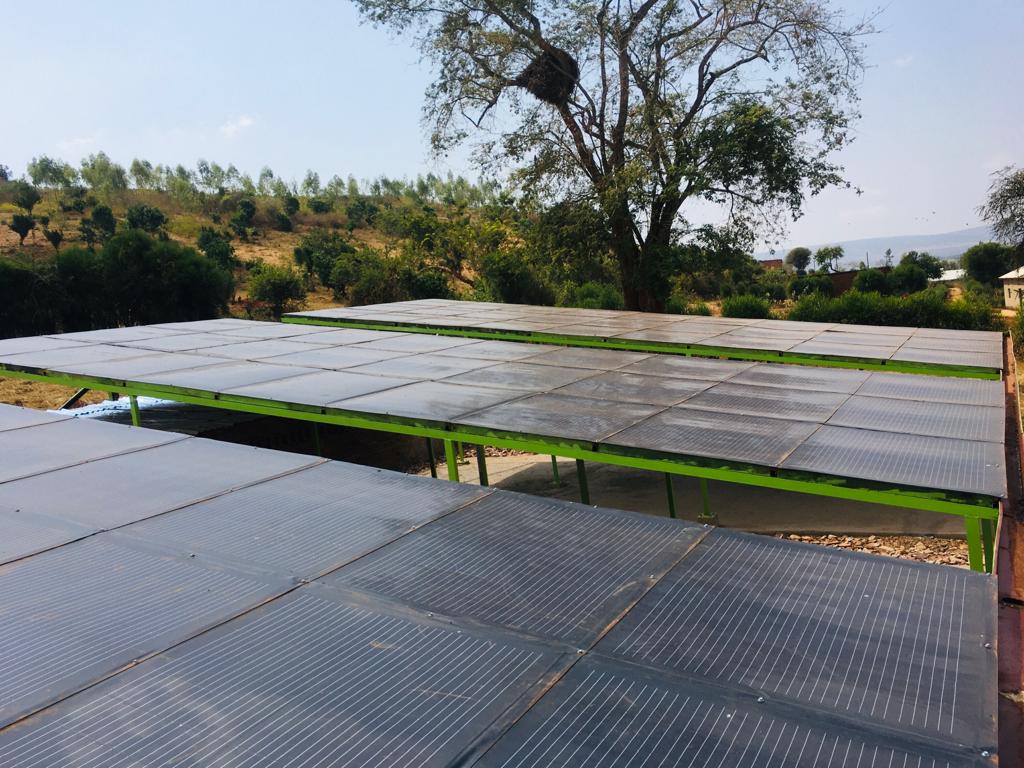
Deployment
Despite many challenges posed by COVID-19, the DeSiRABLE team successfully installed a 20kWp PV-battery system with the existing diesel generator kept solely as backup. Based on our modelling and analysis, (i) the standby generator should only be used for 5.5% of annual operational hours, and (ii) the PV system will be able to support productive applications as well as electricity access for local families through a battery-as-a-service scheme.
The PV-battery system consists of:
- 20kWp PV panels
- 3 x 8KVA Victron off-grid inverter-chargers
- 1 x 15kW Fronius grid-tie inverter
- 2 x 150 35 Victron MPPT charge controllers
- 60kWh Li-ion battery bank
Dissemination
Initial outcomes of the energy system modelling and business models have been presented in international conferences, with additional reports and publications being prepared.
Professor AbuBakr Bahaj presented his paper Enhancing sustainable off-grid rural electrification through PV based electrification of Milk Collection Centres in Rwanda at the International Conference on Sustainable Energy Technologies (SET 2022), hosted in Istanbul, Turker from 16-18 August 2022 . His presentation indicated that DeSiRABLE’s innovative approach of electrification within the MCC can offer grid price parity for the PV systems, which is estimated to be USD 0.25/kWh. Similar approaches can be replicated for different agricultural anchor base loads in Rwanda and other African countries to support SDG-7 and other related SDGs through multiplier effects.
